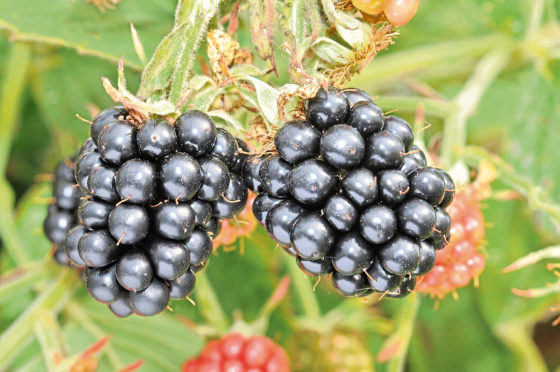A new blackberry breeding programme at the James Hutton Institute has enjoyed a hugely encouraging first year according to fruit breeder, Nikki Jennings.
Speaking at a meeting in Dundee yesterday, she said the level of fruit quality and flavour found in newly crossed plants had been “really surprising”.
“We definitely got off to a flying start,” she told members of the Scottish Society for Crop Research (SSCR) during their Soft Fruit Winter Meeting, held at the institute.
“We looked at 180 different genotypes last year, selecting six which will now be taken forward for further trials. Our first year crosses have certainly generated a lot of interest.”
Renowned for its success in breeding raspberries over many years, the institute’s involvement in blackberry breeding was described by Ms Jennings as more “ad hoc”, despite the development of top-level varieties such as Loch Ness, Loch Tay and Loch Maree. That was before launch in January last year of a blackberry breeding consortium, backed by five European propagators and managed by James Hutton Limited. Funding only runs for five years, which is not long in blackberry breeding terms.
Ms Jennings said she was hopeful a new cultivar will be ready to at least enter commercial trials by the end of the funding period.
She said a further 200 new crosses will be planted this year with similar numbers following in subsequent seasons.
“Our priority breeding focus is on fruit quality and flavour, alongside good shelf-life, with a view to helping growers satisfy the rising demand for blackberries as a fresh dessert ingredient.”
New varieties will also need to meet tough environmental and production requirements with new seedlings being given minimum protection from disease attacks and absolutely no chemicals.
“This means any plants which show signs of being susceptible to disease can be discarded at an early stage,” she said.
